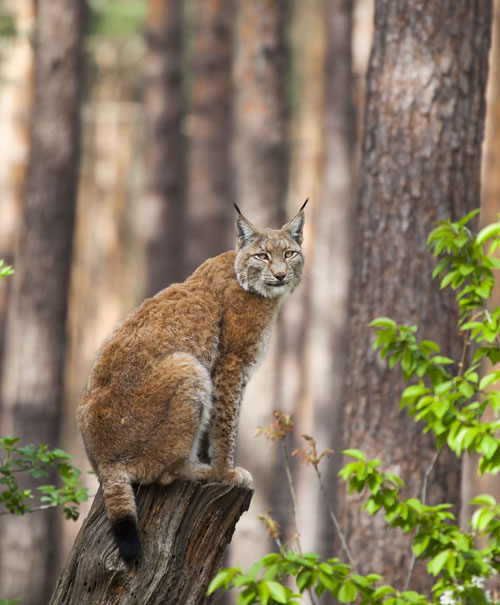WILD lynx – which have been extinct in Britain for 1,300 years might soon be found roaming Scottish forests in the most ambitious “rewilding” programme attempted in the UK.
If approved, the plan to release these big cats – which prey mainly on deer but also sheep and hare – could see Lynx in three privately owned by unfenced estates in Aberdeenshire, Cumbria and Norfolk.
The Lynx UK trust yesterday launched a public consultation to gauge reaction to the plan. It will later lodge a formal application with Scottish Natural Heritage (SNH) and Natural England.

A science adviser at the trust – Paul O’Donoghue – said: “The lynx is a magical animal that last roamed Britain [at least] 1,300 years ago.
“It is one of the most beautiful cats on the planet and its absence makes Britain a poorer place.”
Four to six lynx wearing radio tracking collars would be released at each site under the plan.
Adult lynx are around 70lb depending on age and gender and around the size of a large dog and can climb trees.
One landowner who wants the big cat back is Tony Marmont, a businessman and owner of Grumack Forest, Aberdeenshire.
He said: “Lynx will have an extremely beneficial effect on our forest ecosystems, both directly and as ambassadors for wider conservation projects.
“I also believe we should try to reintroduce an animal that humans made extinct here.”
Another site chosen is near Norfolk’s Thetford Forest – one of England’s largest woodlands. And the other is Ennerdale in the Lake District that already hosts a National Trust project to bring back its original wildness.
Research is being conducted by Cumbria University’s Dr Ian Conver. He said: “There is compelling evidence from elsewhere that carnivore reintroductions can benefit both the ecosystem and the economy.”
Reintroductions of wild carnivores in the past have been blocked over fears that they may prey on livestock and gamebirds.
Lynx living wild in Romania and Poland rarely attack sheep or other livestock and O’Donoghue pointed out that a subsidy programme for farmers would be set up.
Peter Watson of the Deer Initiative – a partnership of government agencies, conservationists and landowners formed to find humane ways of controlling deer welcomed the idea.
He said: “We have six species of deer, of which only two are native. We want to protect our native biodiversity and also reduce the number of vehicle collisions there are with deer – these kill between 10 and 20 people a year and cause thousands of injuries.
A National Farmers’ Union spokesman said: “We would be concerned about the reintroduction due to high cost and failure risk.”

